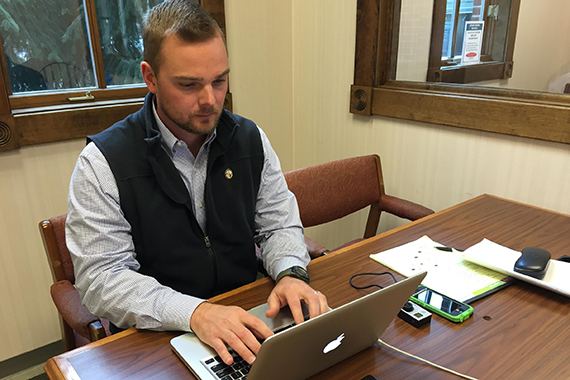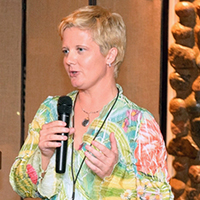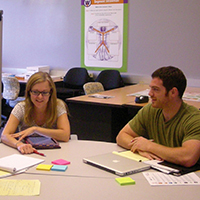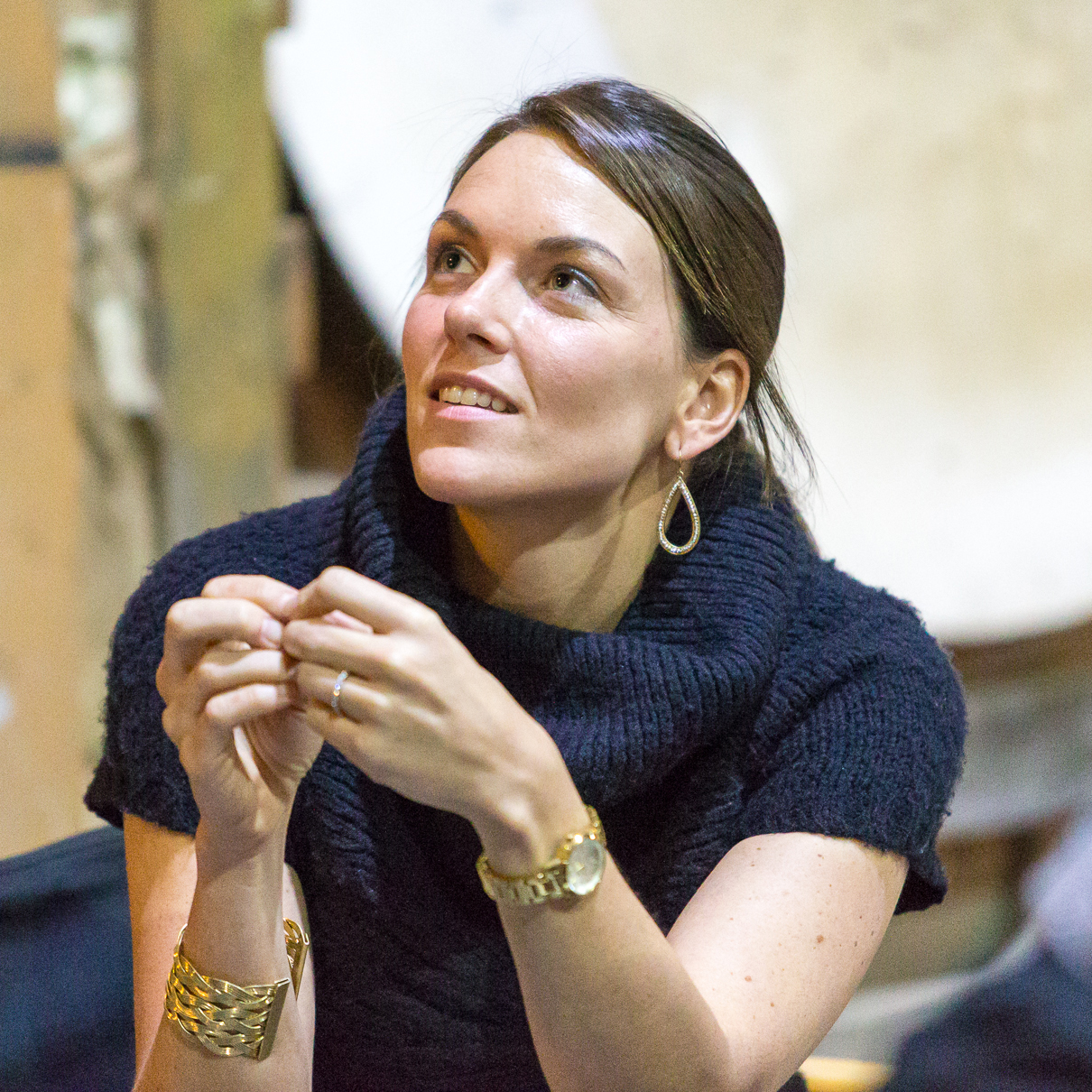 Audio Bonus: Listen to WBAA's exclusive interview with EBV alumnus Chris Jackson (Photo courtesy of WBAA)
Audio Bonus: Listen to WBAA's exclusive interview with EBV alumnus Chris Jackson (Photo courtesy of WBAA)
On a Mission
EBV alum plans to use vets to improve technology
Myriad national and state programs aim to connect military veterans and employers. The difficulty, say veterans and employment professionals, is making the transition to civilian life from a structured environment where each member of a team has a clearly defined mission.
U.S. Air Force veteran Chris Jackson, who lives in Zionsville, Indiana, survived 12 years disposing of explosive devices in Iraq and Afghanistan. “I went into the military and did specifically what I did because I wanted to make sure the people that were there got home,” he says.
As challenging, and potentially deadly, as that work was, Jackson says his transition to civilian life since 2014, and finding a career that provides the same sense of purpose, has been daunting.
Dissatisfied with a traditional job, Jackson enrolled in the 2015 Entrepreneurship Bootcamp for Veterans with Disabilities (EBV) at Purdue in Krannert School of Management, one of only ten EBV consortium universities in the nation to host the annual program designed to help veterans shape their passions into a career path.
Jackson entered the boot camp with a business plan to use his military experience to help solve problems he encountered in the Middle East, such as a surveillance drone that couldn’t operate in desert conditions. “What my company or organization plans to do is bring those end users in the defense sector into the product development stage,” he says.
Experts on campus, members of local co-working studios, other veterans and volunteers coached the physically and psychologically injured participants on all things business, from testing the value of an idea, to marketing, development and operations.
Jackson’s concept of connecting contractors with skilled veterans to field test combat-ready technology moved from nonprofit, to for-profit, back to non-profit during the intensive eight-day course.
“I was sacrificing my entire vision and desires just so I could make a business work,” he says. “When I expanded my view, I was able to realize that you can meet a social need.”
Jackson’s plan now includes creating a program at Purdue in which highly skilled veterans help develop defense technology the University can commercialize. The veterans would have access to a support system as well as educational opportunities.
He’s also partnering with Indiana’s Operation: Job Ready Veterans to obtain funding to expand programming and connect with veterans early in their transition to civilian life.
“We want to make as early as possible contact with them, pair them up with a peer mentor,” he says. “From there, we utilize the already existing Indiana resources within the state in employment, entrepreneurship and in education, and we create a transition plan for them.”
While Jackson works to create a smoother transition for future veterans, he continues to consult with mentors on developing his original idea.
Jackson says he still wants to source returning veterans and their field knowledge to solve problems those troops faced overseas. But he’s not sure how or when he’ll start his company. Entrepreneurship — like the transition from military to civilian life — is not linear, he says.
“I tell people I don’t care how this works,” he says. “If it works as a not-for-profit. If it works as a for-profit. As long as it gets out there. It’s valuable enough and it needs to happen.”
Story courtesy of WBAA






